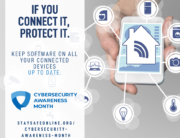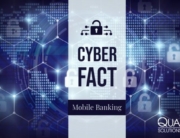
National Tax Security Week 2021
The Internal Revenue Service and the Security Summit announced National Tax Security Week, which runs from Monday, Nov. 29 through Friday, Dec. 3.
The IRS said tax payers and professionals should be aware that this year’s risk of tax scams and identity theft is significant.
“The combination of the holiday shopping season, the upcoming tax season and the pandemic create additional opportunities for criminals to steal sensitive personal or finance information,” stated the IRS in a press release announcing National Tax Security Week.
The IRS, Security Summit, and partners are working to raise awareness about the dangers of tax scams and identity theft and distribute educational resources to mitigate the risk.
“Don’t let this be the most wonderful time of the year for identity thieves,” said IRS Commissioner Chuck Rettig. “The approach of the holidays and tax season increases risk for taxpayers and opportunities for criminals. We urge people to be extra careful with their personal and financial information during this period while shopping online or getting suspicious emails or text. Taking a few simple steps can keep people from becoming victims of identity theft and protect their sensitive personal information needed for tax returns and refunds.”
Highlights of this year’s National Tax Security Awareness Week include:
Day 1 – Cyber Monday: Protect personal and financial information online
The IRS and the Security Summit partners remind people to take these basic steps:
- Use security software for computers and mobile phones – and keep it updated.
- Avoid phishing scams, especially related to tax refunds and COVID-19, Economic Impact Payments and other tax law changes.
- Use strong and unique passwords for all accounts.
- Use multi-factor authentication whenever possible.
- Shop only secure websites; look for the “https” in web addresses and the padlock icon; avoid shopping on unsecured and public Wi-Fi in places like coffee shops, malls or restaurants.
Day 2 – Giving Tuesday: Beware of scammers using fake charities
The IRS and the Security Summit partners warn people to avoid getting scammed when donating to charities. The agency provides the following tips:
- Individuals should never let any caller pressure them into giving a donation without allowing time for them to do some research.
- Confirm the charity is real by asking for its exact name, website and mailing address and confirming it later.
- Be careful about how a donation is made. After researching the charity, pay by credit card or check and not by gift card or wiring money.
Day 3 – Get an Identity Protection PIN
Taxpayers who can verify their identities online may opt into the IRS IP PIN program – a major expansion of the program from previous years. This is another tool taxpayers can use to protect themselves – and their tax refund. Here’s what taxpayers need to know:
- The Identity Protection PIN or IP PIN is a six-digit code known only to the individual and the IRS. It provides another layer of protection for taxpayers’ Social Security numbers on tax returns.
- Use the Get an Identity Protection PIN (IP PIN) tool at IRS.gov/ippin to immediately get an IP PIN.
- Never share the IP PIN with anyone but a trusted tax provider.
Day 4 – Tax professionals should review their security protocols
As identity thieves continue targeting tax professionals, the IRS and the Summit partners urge practitioners to review the “Taxes-Security-Together” Checklist, including:
- Deploy basic security measures.
- Use multi-factor authentication to protect tax software accounts.
- Create a Virtual Private Network if working remotely.
- Create a written data security plan as required by federal law.
- Know about phishing and phone scams, especially related to Electronic Filing Identification Numbers (EFINs), COVID-19 related tax-law changes including Economic Impact Payments.
- Create data security and data theft recovery plans.
Use digital signatures to submit IRS forms and check account details on secure portal
The IRS began accepting digital signatures on a variety of forms this past year. Additionally, the agency made improvements to its online accounts platform to help both tax pros and individuals.
- Tax pros may go to the new Tax Pro Account on IRS.gov to digitally initiate Power of Attorney and Tax Information Authorization requests.
- Taxpayers have digital control over who can represent them or see their account information on the Online Account portal.
- The IRS now accepts a wide array of digital signatures on a number of forms that cannot be electronically filed.
Day 5 – Businesses should implement safeguards; watch out for tax-related scams
Most cyberattacks are aimed at small businesses with fewer than 100 employees. Here are some details from this segment:
- Learn about best security practices for small businesses.
- IRS continues protective masking of sensitive information on business transcripts.
- A Business Identity Theft Affidavit – Form 14039-B – is available for all businesses to report theft to the IRS.
- Beware of various scams, especially the W-2 scam that attempts to steal employee income information.
- Check out the “Business” section on IRS’s Identity Theft Central at IRS.gov/identitytheft.
Start now to secure your personal and financial data – before your information is compromised. See below for resources to help you prepare for a secure tax season.





